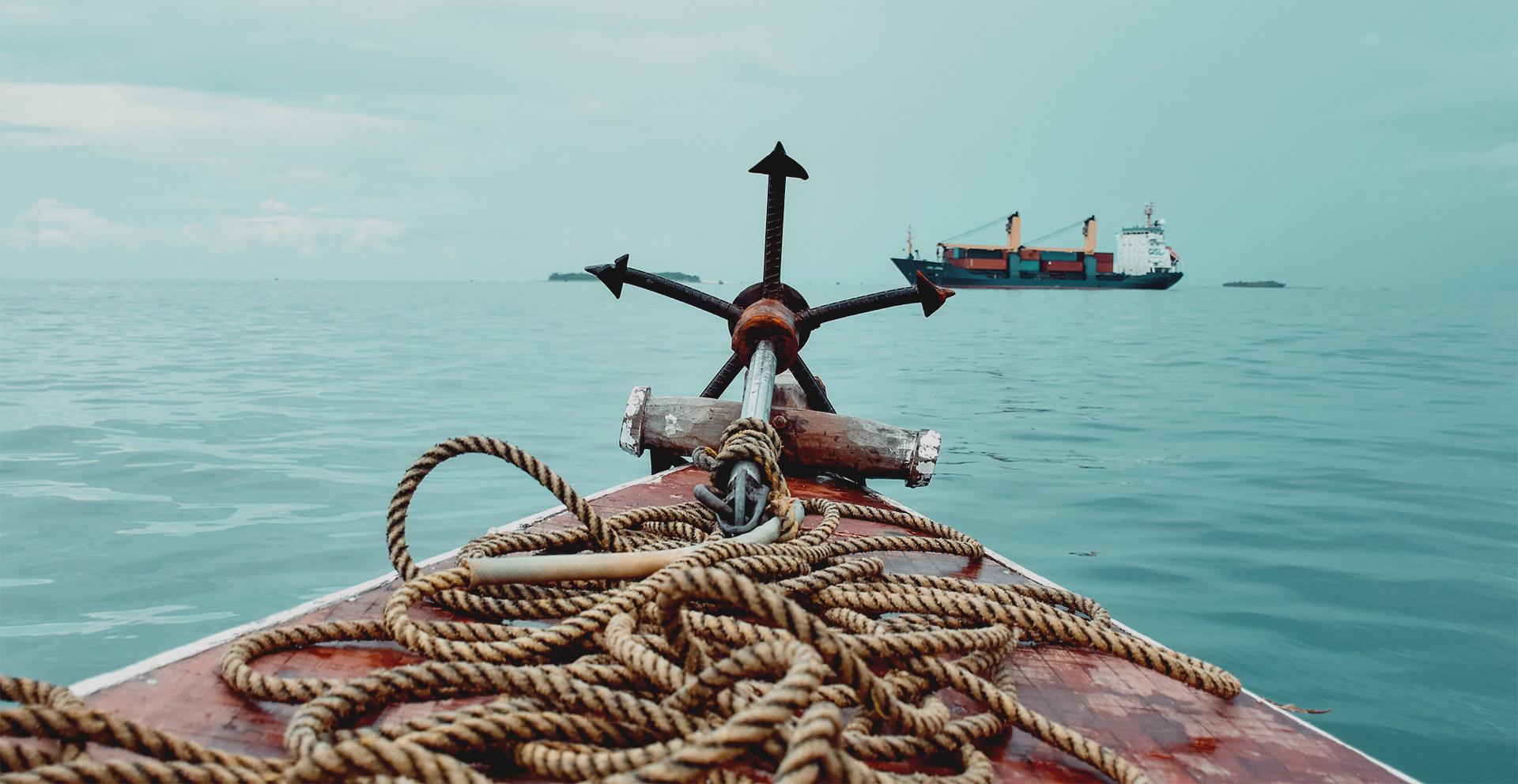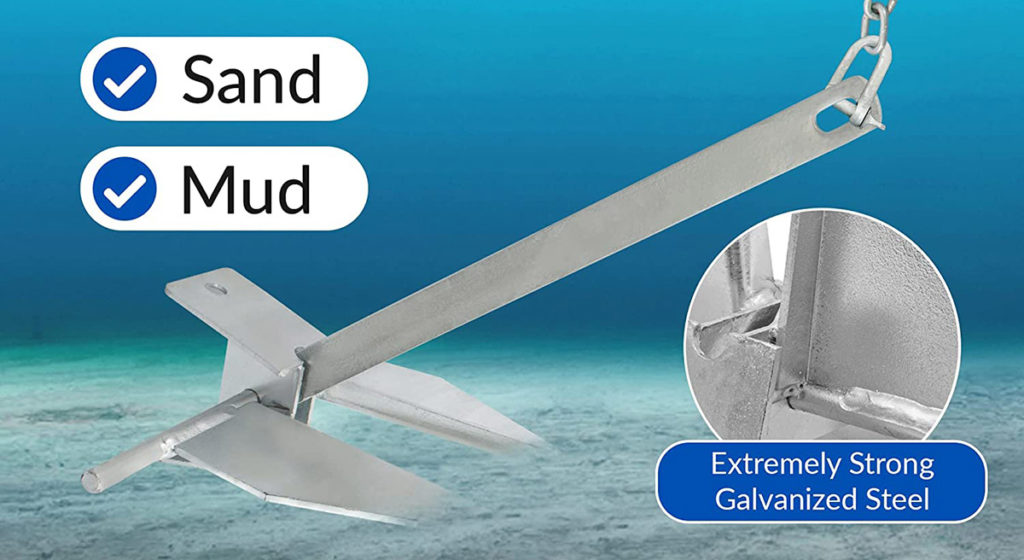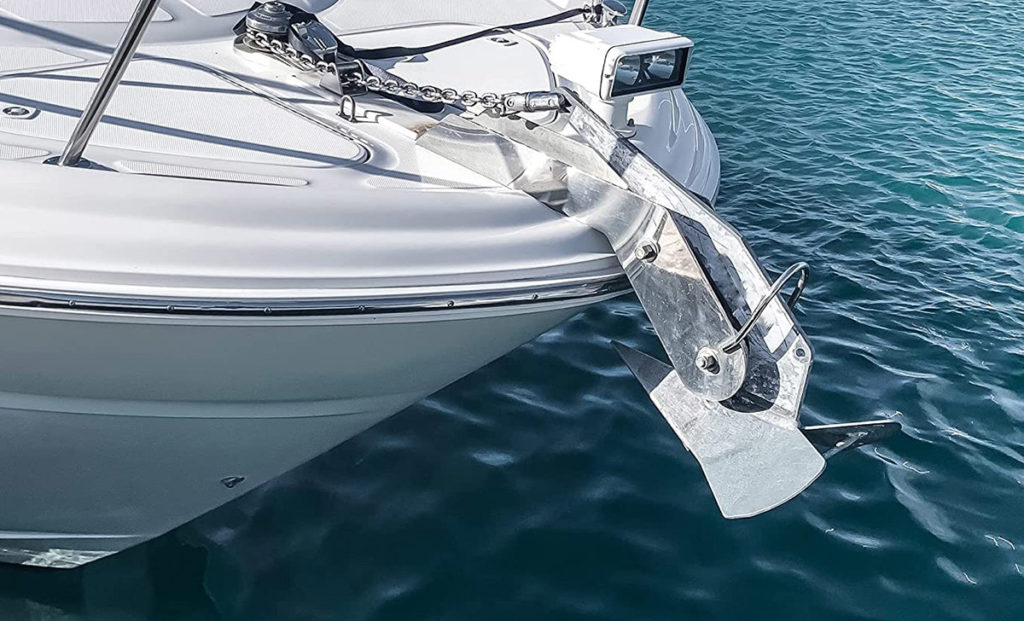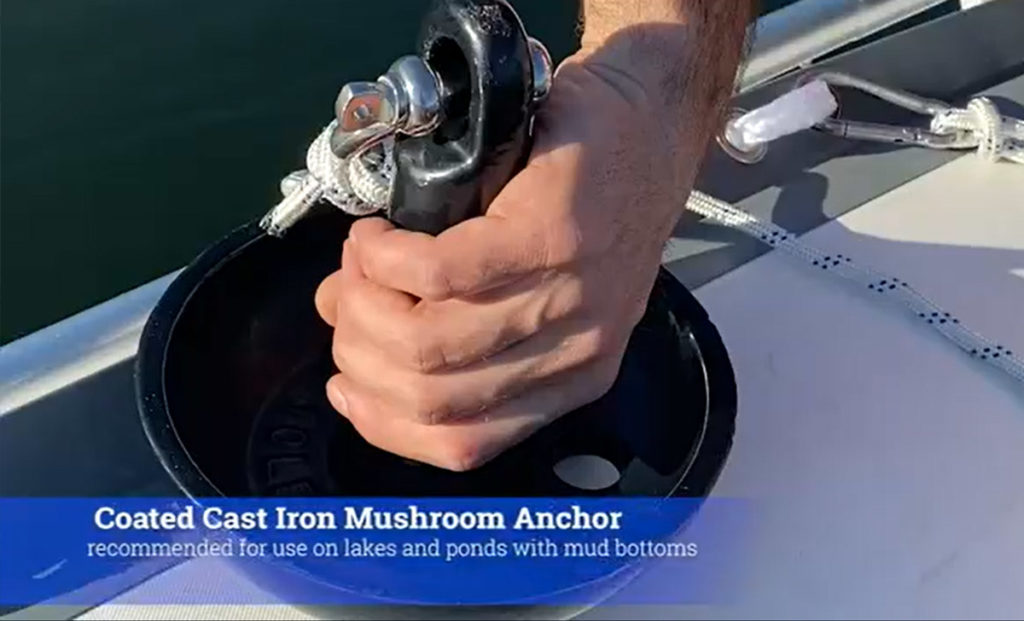As a boater, there are few things more important than choosing the right anchor for your vessel.
An anchor is what keeps your boat in place, ensuring that it won’t drift away while you’re fishing, swimming, or simply relaxing on the water.
But with so many different types of anchors available, how do you know which one is right for your boat?
In this article, we’ll take a look at the different factors you should consider when choosing an anchor so that you can make an informed decision and enjoy your time on the water with peace of mind.
Let’s get started.

Why Use a Boat Anchor
A boat anchor has more benefits than you may realize.
Safety
An anchor could provide safety in different emergency situations, including an engine failure. It prevents the boat from moving into dangerous areas.
Saving Fuel
An anchor can also save fuel in certain circumstances, including fishing and when waiting for the tide to change.
Recreation
An anchor allows boaters to enjoy different activities such as fishing, diving, swimming, and even sunbathing by keeping the boat in one place.
Anchor Types and Their Benefits
Fluke, plow, and mushroom are three of the most common types of boat anchors. Before getting into how to select the right one, it’s important that you know the benefits and drawbacks of each one.
Fluke Anchors

A fluke anchor is probably the most common type of anchor suitable for small-sized boats. This anchor type offers decent holding power despite being lightweight.
Importantly, the sharp and wide flukes make it suitable for sandy and muddy bottoms.
However, the fluke-style anchor isn’t an effective option for rocky and grassy bottoms.
Plow Anchors

Plow anchors are a popular option for challenging bottom types. Boaters with larger boats can rely on a plow anchor in heavy weather conditions.
However, a major disadvantage of a plow anchor is that it doesn’t work well with bottoms having loose materials, such as mud and soil.
Plus, because of the anchor weight and design, it isn’t easy to handle and stow.
Mushroom Anchors

A mushroom anchor, as the name suggests, is shaped like a mushroom. The mud and silt set into the mushroom, holding it in place and providing the necessary holding power.
However, mushroom anchors aren’t designed to hold heavier boats in place. They are also not suitable for high winds or strong currents.
While selecting an anchor, don’t forget to consider the type of boating you do.
Anchor Sizing and Weight
The size and weight of your boat anchor affect its holding power. This means selecting a boat anchor with the right weight and size is important to ensure your boat stays put, even in challenging conditions.
The overall weight of your weight is the determining factor when it comes to selecting the right type of anchor.
To calculate your vessel’s weight, you may have to add the weights of its different components, including the hull and the engine.
However, of course, you’ll also have to account for other variables such as wind and current when choosing an anchor.
Ideally, you want to get a slightly larger anchor than recommended to account for any additional winds or strong currents.
Anchor Materials and Construction
Manufacturers use different types of materials to construct boat anchors.
Each material has its own properties, which ultimately affect its performance in the water.
So, to get the most appropriate anchor for your boating needs, it’s also important to consider the material it’s made of.
Steel Anchors
Steel anchors are super durable, making them an ideal choice for boats that stay inside the water for extended periods.
Moreover, steel anchors aren’t as expensive as aluminum and galvanized steel anchors. Additionally, they provide excellent holding power and tend to be affordable as well.
However, steel anchors are also on the heavier side and require regular maintenance for the prevention of rust and corrosion.
Aluminum Anchors
Aluminum anchors are lightweight yet strong, making them an ideal choice for smaller boats. Plus, aluminum metal is resistant to rust and corrosion, which makes them long-lasting.
They also require little to no maintenance, other than an occasional cleaning and inspection. Aluminum anchors are suitable for boaters who transport their boats frequently, as they’re lightweight and easy to handle.
However, an aluminum anchor isn’t as strong as a steel anchor and may not hold up effectively in harsh conditions.
Galvanized Steel Anchors
Galvanized steel anchors are strong, durable, and generally inexpensive. Plus, they’re resistant to rust and corrosion, which makes them an ideal choice for saltwater environments.
Galvanized steel anchors, however, can be a bit heavy, making them tough to handle.
When choosing an anchor for your boat, consider:
- The size and weight of your boat
- And the conditions you’re going to encounter
For instance, if you plan to anchor in harsh conditions and have a large boat, steel or galvanized steel anchor would be the right option.
On the other hand, if you intend to anchor in normal conditions and have a small boat, an aluminum anchor may do the trick.
Anchor Accessories
Let’s talk about certain accessories that can enhance the performance of your anchor.
Anchor Chains
An anchor chain may not be a must-have, but they do increase the downward pull on the anchor handle.
The additional weight of the chains provides extra support and prevents the anchor from dragging on the bottom.
If you think you need anchor chains, it’s important to make sure that you’re not using too much or too little.
The chain should be appropriately sized based on the weights of your boat and anchor.
Swivels
You’ll only need swivels if you’re using an anchor chain. The purpose of a swivel is to keep the chain from twisting.
Twisting of the chain can cause your anchor to tangle or even dislodge.
If you intend to use a chain, we’d recommend adding swivels to your arsenal as well.
They can reduce stress on the chain and anchor, which can help increase their lifespans.
Anchor Lines
Anchor lines are chains that link your boat to the anchor. These lines are responsible for keeping your boat from drifting away, especially in windy conditions.
It’s important to choose the right length and type of anchor lines based on your boating conditions and the size of the boat.
Conclusion
An anchor holds your boat against water currents and winds, keeping your boat from drifting off.
Choosing the right anchor is important for a safe and enjoyable boating experience. You may also want to consider some anchor accessories to enhance the performance of your anchor.
It’s important to make the right decision the first time as it’s a long-term investment. You don’t want to go through the same buying process again.
By considering the different factors we’ve discussed in this article, you can be sure to pick the most suitable and cost-effective anchor for your boating needs.
We hope you found this guide helpful and can now confidently pick the right anchor for your boating needs.
